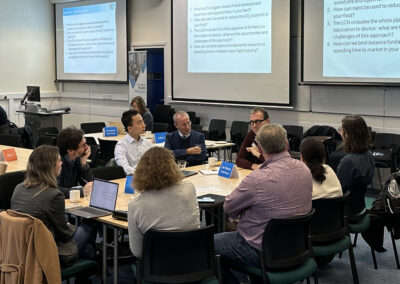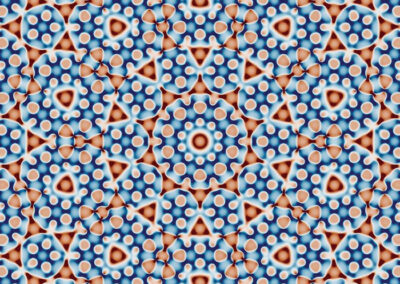For quantum computers to demonstrate advantage over classical approaches the number of qubits available must significantly increase beyond current state-of-the-art implementations. CMOS-compatible spin qubits based on silicon transistor technology could provide the solution due to their scaling capability. I am interested in how high kinetic inductance materials can be incorporated into the qubit readout architecture. This would significantly decrease the footprint of the readout resonator and allow the CMOS-compatible approach to reach its full scaling capability.



